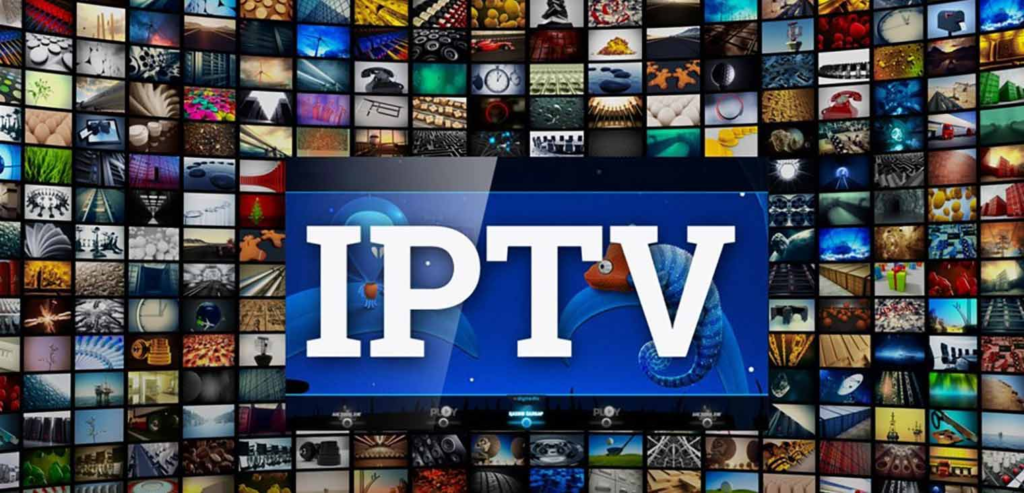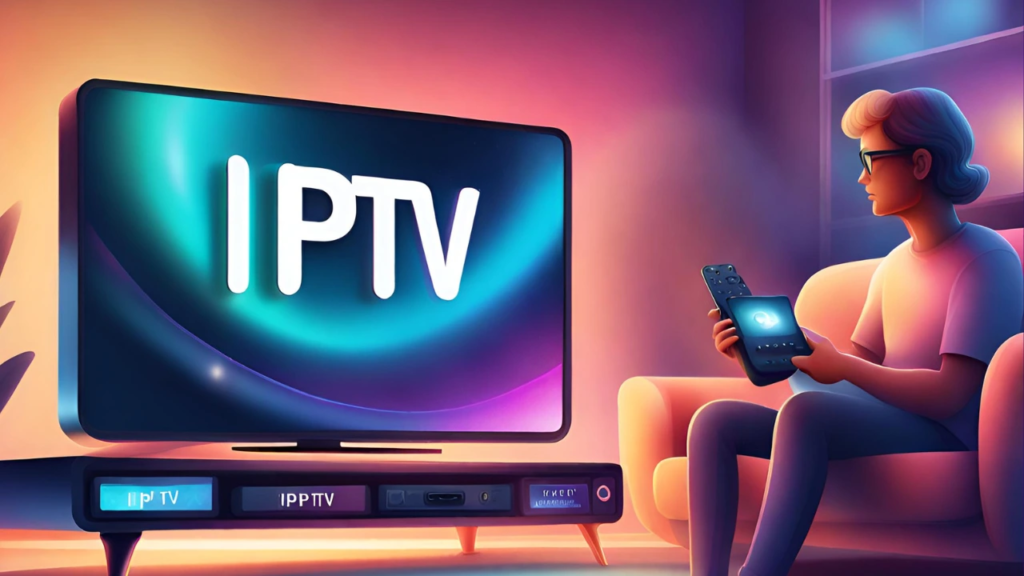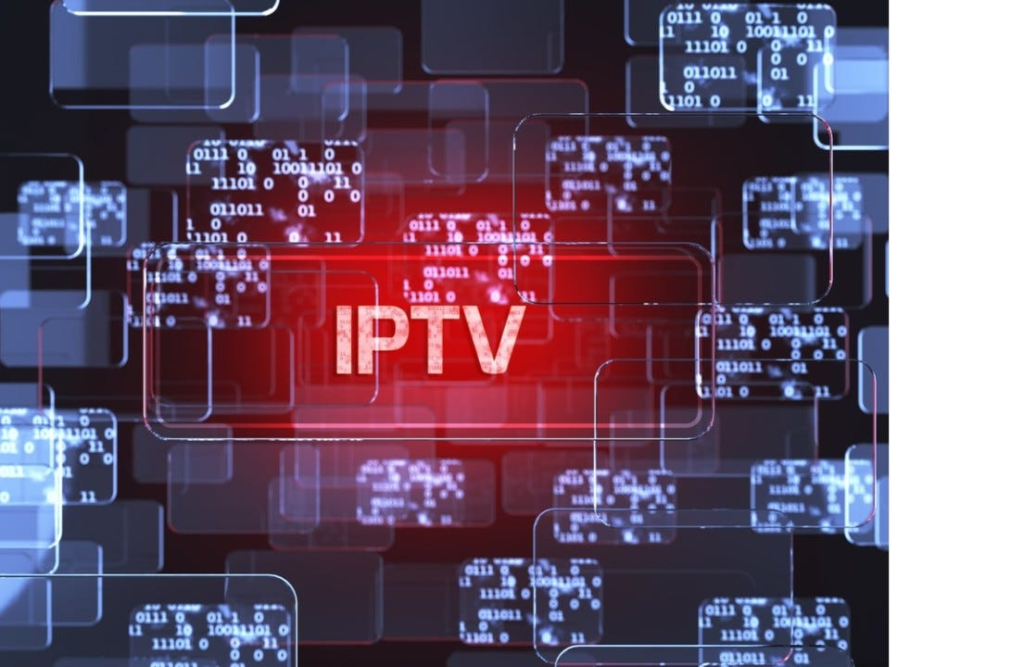In today’s digital age, the demand for fast and reliable Internet Protocol Television (IPTV) services has surged dramatically. Fast IPTV not only promises seamless streaming of high-definition content but also enhances the overall user experience with minimal buffering and lag. As more consumers shift towards IPTV for their entertainment needs, understanding what makes fast IPTV essential is crucial.
“Fast IPTV” can have two meanings. It could be an app you download to watch live TV channels, but it wouldn’t provide the channels itself. Alternatively, it might describe an IPTV service known for its speedy streams. Remember, these services can be legal or not depending on your location, so check the rules before using one”
Discover fast IPTV services offering high-speed streaming and a wide range of channels. Choose the best fast IPTV for your viewing needs and enjoy HD quality on-demand content seamlessly.
Introduction to Fast IPTV!
Fast IPTV refers to Internet Protocol Television services that prioritize high-speed streaming and seamless viewing experiences. Unlike traditional cable or satellite TV, fast IPTV utilizes internet protocols to deliver television content, offering advantages like on-demand access to a variety of channels and shows. As technology evolves, the demand for fast IPTV grows, driven by its ability to provide reliable, high-quality streaming without buffering or interruptions.
Understanding Fast IPTV:
Fast IPTV operates by transmitting video and audio data over high-speed internet connections. This method ensures that viewers can enjoy content in real-time or on-demand without delays or lagging. The technology behind fast IPTV optimizes data transmission, prioritizing smooth playback and reducing the risk of buffering, which is crucial for maintaining a satisfying viewing experience. This approach contrasts with traditional broadcasting methods, offering greater flexibility and personalization in content consumption.
Importance of Speed in IPTV Streaming:
Speed is paramount in IPTV streaming as it directly impacts the quality of the viewing experience. Here’s why speed matters:
- Smooth Playback: Fast internet speeds ensure that IPTV content streams seamlessly, without pauses or buffering interruptions.
- HD and 4K Streaming: Higher speeds support HD and even 4K streaming, delivering crisp, clear images and immersive sound.
- Multiple Device Usage: Fast IPTV allows multiple devices to stream content simultaneously without compromising quality, accommodating modern viewing habits.
- Real-Time Interaction: Live events and broadcasts benefit from fast speeds, enabling real-time interaction and engagement without delays.
Benefits of Fast IPTV Services!

Fast IPTV services offer significant advantages over traditional TV and slower streaming options. They give clients great streaming encounters, insignificant buffering, and admittance to an extensive variety of content, including live television, motion pictures, and sports.
Enhanced Streaming Quality:
Fast IPTV ensures enhanced streaming quality by delivering content in high definition (HD) and even ultra-high definition (UHD or 4K). This means sharper images, vibrant colors, and smoother playback, elevating the overall viewing experience.
Reduced Buffering and Lag:
One of the key benefits of fast IPTV services is the reduction in buffering and lag times. With faster internet speeds and optimized streaming protocols, users experience minimal interruptions during their viewing sessions, leading to uninterrupted entertainment.
Improved User Experience:
Fast IPTV services enhance the user experience by providing seamless navigation through interfaces, quick loading times for channels and on-demand content, and reliable performance across different devices. This makes it easier for users to enjoy their favorite programs without technical hiccups.
Factors Influencing IPTV Speed!
Internet Connection Speed:
The primary factor influencing IPTV speed is the quality and speed of your internet connection. Faster internet speeds, typically measured in Mbps (megabits per second), ensure smoother streaming experiences with less buffering and higher resolution playback.
Device Performance and Compatibility:
The performance and compatibility of your device also play a crucial role in IPTV speed. Devices with faster processors, ample RAM, and updated software versions can handle high-definition and 4K streaming more efficiently, resulting in improved overall IPTV performance.
Impact of Server Locations:
Server locations of the IPTV service provider can impact speed due to latency issues. Closer server proximity generally results in faster data transmission, reducing lag and improving streaming quality. Choosing an IPTV service with servers located strategically can optimize your viewing experience.
Technical Insights into Fast IPTV!

Protocols and Technologies Used:
Fast IPTV services typically utilize advanced streaming protocols such as HTTP Live Streaming (HLS) or Real-Time Messaging Protocol (RTMP). These protocols ensure efficient delivery of video content over the internet by breaking streams into small segments and adapting to varying network conditions.
Bandwidth Requirements and Management:
Fast IPTV requires sufficient bandwidth to deliver high-quality video streams without interruptions. Providers often recommend minimum bandwidth requirements for different resolutions (e.g., HD, 4K). Effective bandwidth management techniques prioritize video traffic, ensuring smooth playback even during peak usage times.
Adaptive Bitrate Streaming Techniques:
To optimize viewing experiences, fast IPTV services employ adaptive bitrate streaming. This procedure progressively changes video quality in light of accessible transmission capacity and gadget abilities. By delivering the highest possible quality under current conditions, adaptive streaming minimizes buffering and ensures continuous playback.
Challenges and Solutions in Fast IPTV!
Managing Peak Usage Periods:
One of the primary challenges in fast IPTV is managing peak usage periods when demand for streaming services is highest. During peak times, network congestion can occur, leading to buffering and degraded video quality. Service providers address this challenge by optimizing server capacities, implementing load balancing techniques, and expanding infrastructure to handle increased traffic efficiently.
Addressing Network Congestion Issues:
Network congestion can significantly impact the performance of fast IPTV services by causing delays and interruptions in video streaming. To mitigate this issue, providers employ traffic shaping mechanisms to prioritize IPTV traffic over other internet activities. Additionally, optimizing data compression techniques and investing in high-capacity networks help alleviate congestion and ensure consistent streaming quality for users.
Overcoming Geographic Limitations:
Geographic limitations can pose challenges for fast IPTV services, especially when serving users in remote or underserved regions. To overcome these limitations, providers establish regional server nodes closer to users, reducing latency and improving streaming speeds. Content delivery networks (CDNs) are also utilized to distribute content efficiently across different geographical locations, ensuring a seamless viewing experience regardless of the user’s location.
Security Considerations in Fast IPTV!

Ensuring Secure Connections:
Security in fast IPTV involves ensuring that all data transmissions between the IPTV service and the user’s device are encrypted. This encryption prevents unauthorized access and protects sensitive information, such as login credentials and payment details, from interception by malicious third parties. Secure connections are typically established using protocols like HTTPS (Hypertext Transfer Protocol Secure) for web-based interactions and VPN (Virtual Private Network) for broader network security.
Importance of VPNs for Privacy and Security:
VPNs play a crucial role in enhancing privacy and security for fast IPTV users. By encrypting internet traffic and masking the user’s IP address, VPNs safeguard against surveillance and tracking by ISPs (Internet Service Providers), government agencies, and potential hackers. For IPTV users, VPNs enable access to geo-blocked content by simulating a different geographic location. Moreover, VPNs protect against distributed denial-of-service (DDoS) attacks and ensure anonymity while streaming content, thereby enhancing overall security and privacy online.
Future Trends in Fast IPTV Technology!
Advancements in Streaming Technologies:
Future advancements in fast IPTV technology are expected to focus on improving streaming quality and reliability. This includes the adoption of more efficient video compression codecs, such as HEVC (High Efficiency Video Coding), to deliver higher resolution content with reduced bandwidth requirements. Moreover, headways in versatile bitrate streaming methods will empower smoother playback by changing video quality in light of organization conditions continuously.
Integration with Emerging Tech Innovations:
Fast IPTV is likely to integrate with emerging technologies like artificial intelligence (AI) and machine learning (ML). These technologies can enhance user experience by providing personalized content recommendations and predictive analytics based on viewing habits. Furthermore, integration with smart home devices and voice assistants may streamline control and accessibility, offering users more interactive and intuitive IPTV experiences.
Predictions for Speed and Performance Enhancements:
Looking ahead, speed and performance enhancements in fast IPTV technology will continue to evolve. This includes optimizing server infrastructures to reduce latency and improve response times, thereby minimizing buffering and lag. Advances in network technologies, such as 5G and fiber-optic broadband, will further enhance data transmission speeds, enabling seamless streaming of high-definition and even 4K content on multiple devices simultaneously. Moreover, innovations in content delivery networks (CDNs) will ensure robust performance across global networks, catering to the growing demand for fast and reliable IPTV services.
FAQS:
What is Fast IPTV?
Fast IPTV refers to Internet Protocol Television services that prioritize high-speed streaming and minimal buffering, offering users a seamless viewing experience.
How does Fast IPTV differ from traditional TV services?
Unlike traditional TV services that rely on cable or satellite, Fast IPTV uses internet protocols to deliver content, allowing for faster data transmission and more interactive features.
What are the benefits of Fast IPTV?
Fast IPTV provides enhanced streaming quality, reduced buffering, and improved user experience compared to conventional TV services. It also offers greater flexibility and access to a wider range of content.
What factors influence the speed of IPTV services?
The speed of Fast IPTV can be influenced by internet connection speeds, the performance and compatibility of the viewing device, and the efficiency of server locations in delivering content.
How can I improve the speed of my IPTV service?
To enhance IPTV speed, ensure a stable and high-speed internet connection, use compatible and high-performance devices, and choose IPTV providers with strategically located servers.
Is Fast IPTV secure?
Fast IPTV services should prioritize secure connections to protect user data and privacy. Using a VPN (Virtual Private Network) can add an extra layer of security when accessing IPTV services over the internet.
What are some common challenges with Fast IPTV?
Challenges may include managing peak usage periods, addressing network congestion, and overcoming geographic limitations that can affect streaming speed and quality.
Can I use Fast IPTV on multiple devices?
Yes, many Fast IPTV providers offer multi-device support, allowing users to stream content on various devices simultaneously, such as TVs, smartphones, tablets, and computers.
How reliable is Fast IPTV during high-demand events?
Reliable Fast IPTV services implement technologies like adaptive bitrate streaming to maintain quality during peak usage times, ensuring a consistent viewing experience.
What should I look for when choosing a Fast IPTV provider?
Consider factors such as streaming speed and quality, device compatibility, server reliability, customer support, and security measures like encryption and VPN support.
Are there legal considerations with Fast IPTV services?
Users should ensure they subscribe to legal IPTV services that have proper licensing agreements for the content they provide, adhering to copyright laws and regulations.
Conclusion:
“Quick IPTV administrations address a huge progression in diversion innovation. These services prioritize high-speed streaming, minimal buffering, and enhanced user experiences through HD and 4K content delivery. Key factors influencing IPTV speed include internet connection quality, device performance, and server location efficiency”
Read more:
